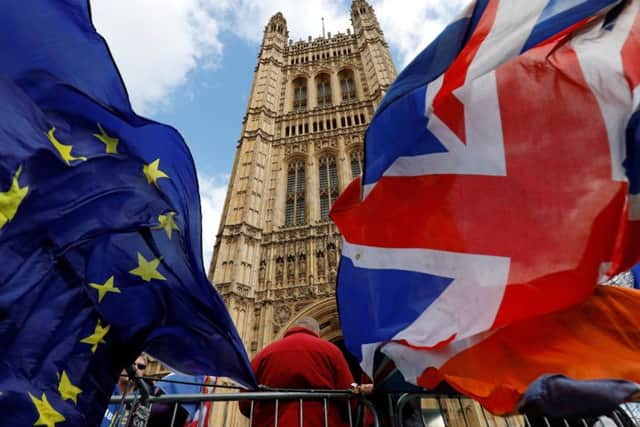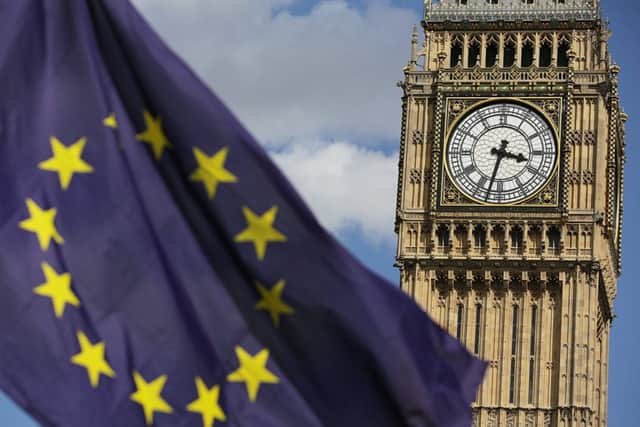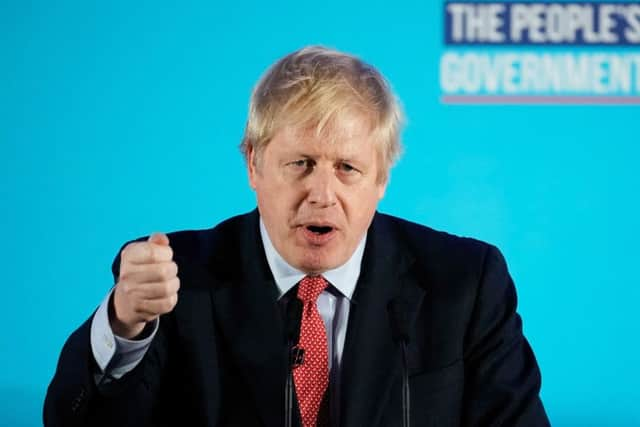EU will only survive Brexit if it now reforms – Bill Carmichael
Well at the moment it depends on who you ask. At one end of the spectrum are the Leaver optimists who envisage healthy economic growth through what has already been dubbed the Roaring Twenties, driven by Singapore-style swashbuckling free enterprise.
At the other end are the Eeyore pessimists of the Remain camp who forecast total economic collapse as well as widespread food and medicine shortages.
Advertisement
Hide AdAdvertisement
Hide Ad

The truth, as is often the case, will probably lie somewhere between these two extremes – although much closer to the former, I think – and I suspect that most people won’t notice much difference to their daily lives.
But there is an equally interesting question that so far has not received as much attention. Not “can the UK survive without the EU”, but “can the EU survive without the UK”?
Advertisement
Hide AdAdvertisement
Hide Ad

There is little doubt that the UK’s departure is a grievous blow to the EU and will leave it poorer, less productive and with higher unemployment.
This is because the UK is the second largest economy in the bloc, accounting to some 16 per cent of the EU’s total GDP.
According to the Financial Times, the loss of the UK will make the EU’s economy smaller than that of the United States.
Advertisement
Hide AdAdvertisement
Hide AdThe EU will also lose about 13 per cent of its population and one of its largest and most prosperous cities – London – which is also a global financial hub.


But it is the loss of British money that is causing most consternation in Brussels. Currently the UK contributes about £20bn a year to EU coffers, receiving roughly half of that back in rebates and subsidies.
That means the UK’s departure will blow a £10bn hole in the EU’s accounts, and as the EU steadfastly refuses to economise, it means that other “net contributor” countries, notably Germany but also the Netherlands, Austria, Sweden and a few more, will have to pay substantially more to keep the EU’s creaking ship afloat.
According to some estimates Germany will have to pay more than £2bn extra a year. I cannot imagine that going down well with voters already fed up that they are treated as Europe’s cash cow.
Advertisement
Hide AdAdvertisement
Hide AdOf course the EU should be strong enough to survive these setbacks, serious though they are, at least in the short term. But the EU’s survival in the longer term depends on what lessons it takes from Brexit.
For some the removal of the obstacle of British intransigence presents an opportunity to go full throttle for “ever closer union” with even more centralisation, EU control over the tax and spending of member countries, a European army and the virtual eradication of the democratic nation state.
This is the dream of the new imperialists, such as the federalist fanatic Guy Verhofstadt, who want to see the creation of a New European Empire that will be in perpetual conflict with other world “empires” such as China, India and the United States.
If the EU is foolish enough to follow this delusion, I don’t see it lasting very much longer. The simmering resentment against an overbearing, top down, anti-democratic bureaucracy forcing though unpopular policies and tax rises, will erupt into violent street protests. Think of France’s gilet jaune protests but on a much larger, pan-European scale.
Advertisement
Hide AdAdvertisement
Hide AdIf, however, the lesson taken from Brexit is that the EU must learn to listen to its citizens and be more responsive to their concerns and ambitions, then perhaps there is a future for a more democratic version of the EU.
If the EU is to have a future, it is not as a “United States of Europe” but as a friendly association of free, independent countries co-operating on trade, security and other matters, but in terms of tax and spending, domestic and foreign policy, subject to the democractic will of their own citizens.
If such an organisation eventually emerged from the wreckage of Brexit, the people of Europe may be grateful – once again – to the British for securing their liberty.
And who knows – perhaps a few decades down the line the UK will decide to rejoin?